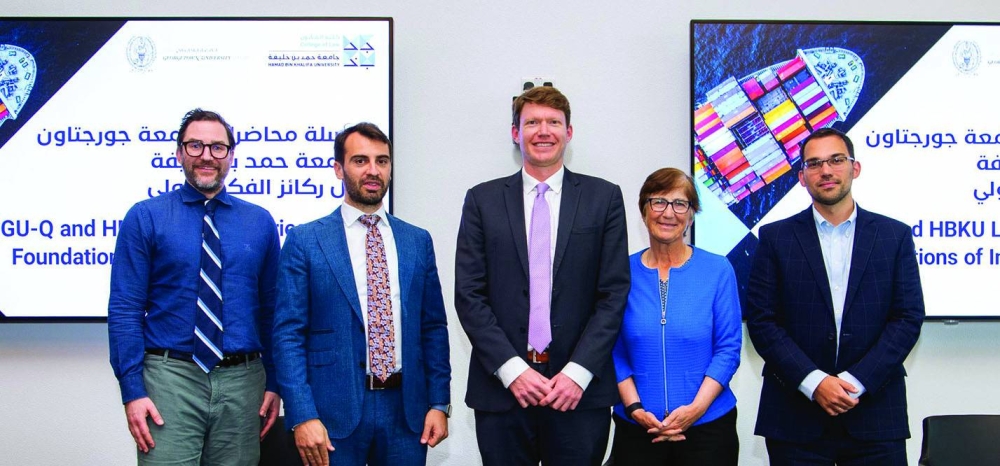Georgetown University in Qatar (GU-Q) and the College of Law at Hamad Bin Khalifa University (HBKU) continued their collaborative lecture series “Foundations of International Thought” with an insightful talk on the recent dramatic changes in international economic governance.
The shift has been marked by an emerging trend among countries imposing taxes and regulations over the way goods and services are produced in another country.
According to Dr Timothy Meyer, the Richard Allen/Cravath Distinguished Professor in International Business Law at Duke University, and visiting professor at HBKU College of Law, the trend represents a departure from the general rule that countries have exclusive authority to tax and regulate productive activities within their own borders.
Dr Meyer shared his insight on “Consumption Governance: The Role of Production and Consumption in International Commerce and Economic Law” in conversation with Dr Emmanouil Chatzikonstantinou, assistant professor of International Economics at GU-Q, and Dr Georgios Dimitropoulos, associate professor of law and associate dean for academic affairs at HBKU. “The rule has been under enormous stress primarily because large economies, particularly developed economies, led by the US and the EU, are increasingly interested in the kinds of activities that their consumption supports overseas,” Dr Meyer explained. He highlighted recent bans on products that violate environmental, labour, or other standards established by the US and EU.
However, developing nations perceive these regulations as unfair restrictions on their economic development strategies, as they create “massive non-tariff barriers to trade”.
They also limit these countries’ ability to set policies that ensure they have a comparative advantage in certain sectors; for example, by being able to produce goods more cheaply.
Dr Chatzikonstantinou and Dr Dimitropoulos further discussed mechanisms to overcome increased international economic conflict and the challenges for international trade institutions like the World Trade Organisation in adapting to this evolving landscape.
For Dr Chatzikonstantinou, supply chain shocks are already having an effect. “You see its impact on the balance of power,” he said, cautioning that “the shift in power is probably going to increase an invisible divide between the Global North and the Global South and that we do not know what the institutional implications will be.”

Recent dramatic changes in international economic governance were discussed in the lecture.
